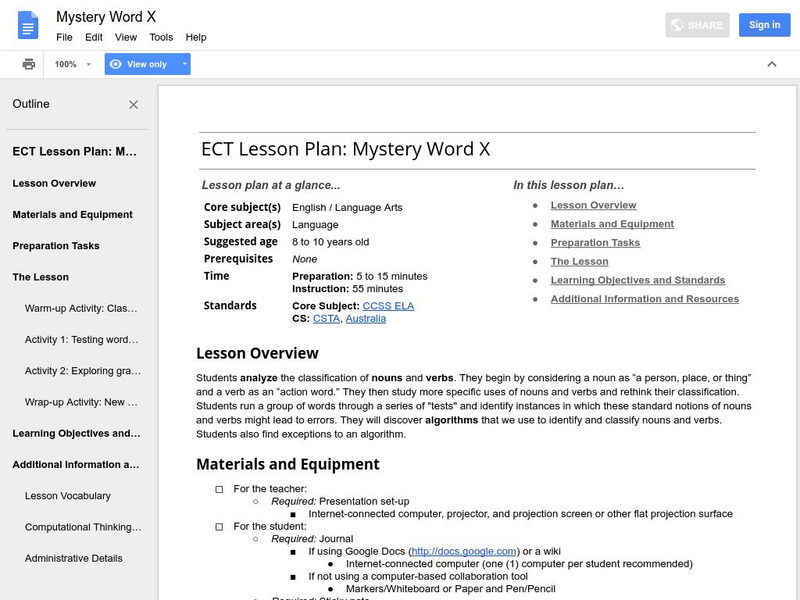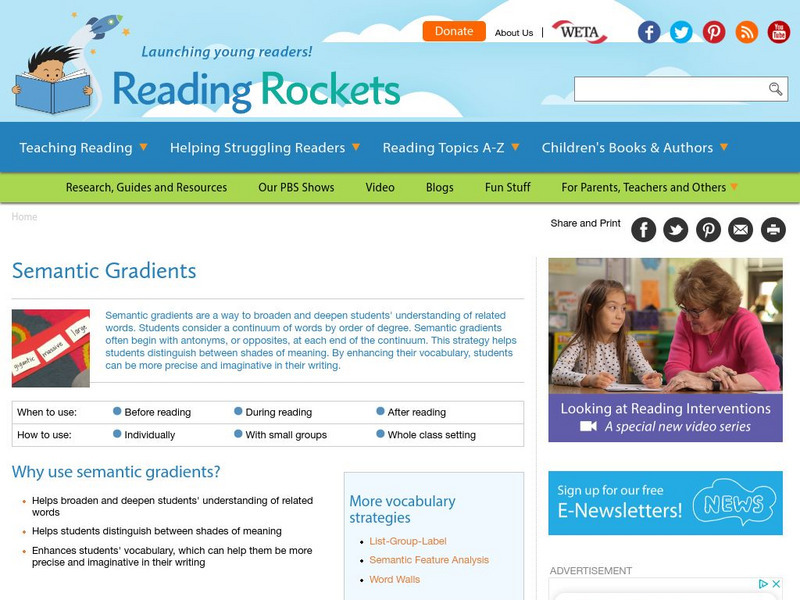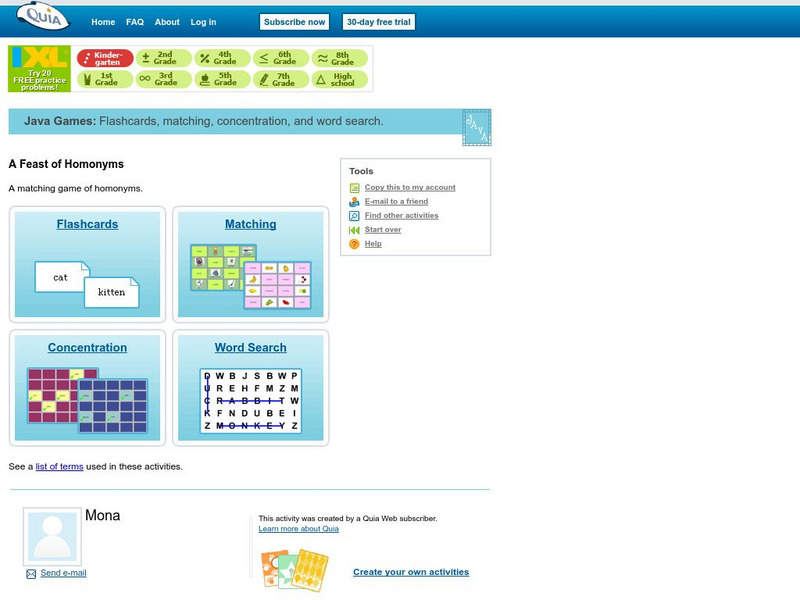K12 Reader
Adjective to Adverb: Sentences
Could your young learners use some help with writing variety? Have them turn their adjectives into adverbs with a simple grammar exercise. Ten sentences prompt kids to find the adjective and rewrite the sentence to use an adverb instead.
K12 Reader
Eating with Adverbs
All the sentences on this adverb worksheet share a focus on eating—where, when, and how people are dining.
K12 Reader
An Adverb Can Tell Where
Outside, backwards, far. Adverbs that tell where action is happening is the focus of a colorful one-page activity that asks kids to select the appropriate adverb from the provided word bank.
K12 Reader
An Adverb Can Tell How
The -ly adverbs are the focus of a learning exercise that asks kids to select adverbs from the provided word bank to add additional information about how the action of the sentence takes place.
K12 Reader
What Is an Adverb?
How, when, where, why. After a brief explanation of the types of additional information adverbs supply about verbs, kids circle the adverbs in a group of sentences and label the type of information provided.
K12 Reader
An Adverb Can Tell When
First, suddenly, always. Adverbs that provide additional information about when an action occurred are the focus of this one-page worksheet.
Essential Kids
Australian Animal Memory Game
Kangaroos, platypuses, koalas...oh my! Your youngsters will love this printable memory game featuring eight different adorable Australian animals.
K12 Reader
Playing with Adverbs
Kids demonstrate their understanding of the different types of adverbs by using the clues provided to add a how, when, or where words to sentences.
Curated OER
Finding Synonyms
Student identify synonyms in poetry. In this grammar lesson, learners define what a synonym is and view several examples on the board. Students read a selected poem on an overhead transparency and circle the synonyms.
Google
Google for Education: Mystery Word X
An exercise for students to analyze the classification of nouns and verbs. They begin by considering nouns as a person, place, or thing, and verbs as action words. Students then study more specific uses of nouns and verbs and rethink...
ABCya
Ab Cya: Ice Cream Talk: Practice Nouns and Verbs
Ice scream, you scream, we all scream for ice cream! Successfully name the correct parts of speech in the game and watch the ice cream scoops pile up.
ABCya
Ab Cya: Antonyms, Synonyms & Homonyms
If you need to brush up on antonyms, synonyms, and homonyms check out this game. Practice identifying these three tricky types of words by matching the identified words on the frog with the words on the correct flies.
Towson University
Towson University: Subject Verb Agreement
This webpage provides a list of nine rules for subject-verb agreement including examples with detailed explanations including arrows and notes as well as exceptions to the rules. It also provides links to terms which are defined with...
Reading Rockets
Reading Rockets: Semantic Gradients
Use the strategy of determining semantic gradients (shades of meaning) to help students improve their vocabulary and understanding of related words.
Better Lesson
Better Lesson: Guess My Solid
Descriptive details are used as students develop a guessing game poster for others to try and guess their chosen solid. Included in this detailed lesson plan are videos, samples of student work, a printable worksheet, an assessment...
Better Lesson
Better Lesson: Learning to Recognize and Use Strong Verbs
In this lesson, students will listen to stories and determine the meaning of the word by using sentence-level context clues. They will think about the verbs that are used and think about how that verb appeals to their senses, giving them...
University of Victoria (Canada)
Study Zone: Simple Past Irregular Verbs
In this exercise students, select the past correct past tense of irregular verbs. Questions can be viewed all at once, or one at a time.
Arcademics
Arcademics: Word Invasion
Practice parts of speech by zapping "jellyfish" words that match the word type provided. Students can select the part(s) of speech they want the game to focus on, as well as the level of difficulty and speed of the game.
English for Everyone
English for Everyone: Sentence Completion 11 (Low Beginning Level) [Pdf]
English for Everyone provides a printable quiz to assess the recall of basic present progressive tense verbs that are needed in beginning English.
English for Everyone
English for Everyone: Sentence Completion 16 (Low Beginning Level) [Pdf]
English for Everyone provides a printable quiz to assess the recall of basic verb tenses that are needed in beginning English.
English for Everyone
English for Everyone: Sentence Completion 19 (Low Beginning Level) [Pdf]
English for Everyone provides a printable quiz to assess the recall of basic verb tenses that are needed in beginning English.
Quia
Quia: A Feast of Homonyms
This is a collection of four homonym games: Flash Cards, Matching, Concentration, and Word Search.
Quia
Quia: Super Synonyms Match Up
This game asks students to match pairs synonyms by clicking on the pairs in the grid provided. Java is required.
Writing Fix
Writing Fix: Serendipitous Alliteration: Letter A
In this lesson, students will play with words as they use alliteration. Students will press buttons to generate adjectives, verbs, names, and nouns that begin with the letter "A" in them. Students will continue to generate letter "A"...





















